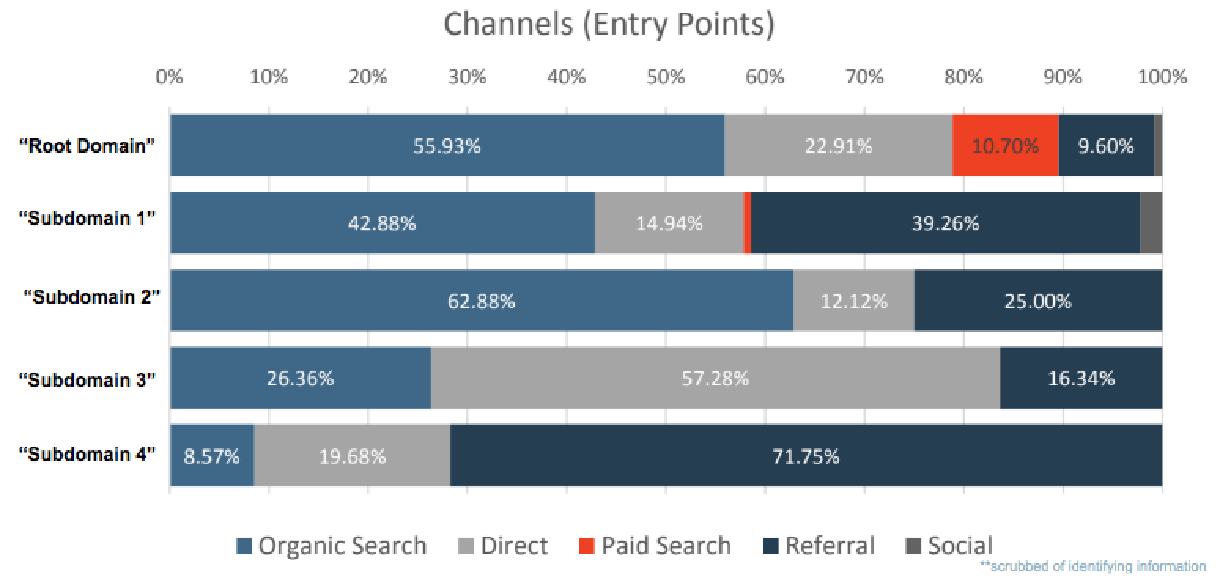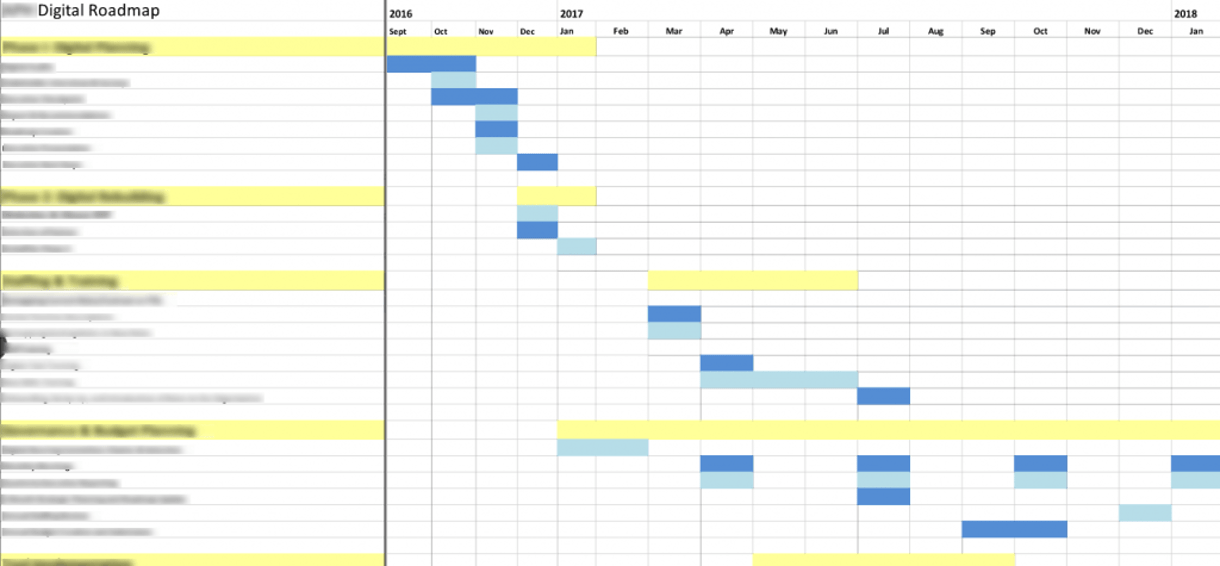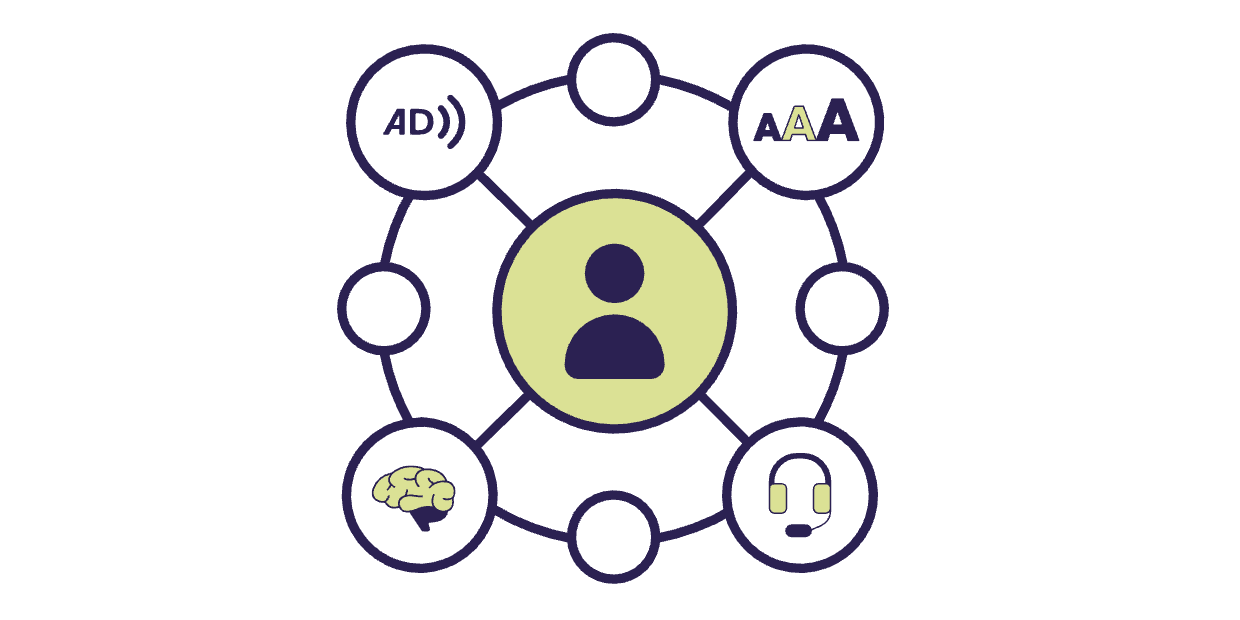

Digital Audits: Your Complete Guide
Digital audits are one of the most misunderstood agency service offerings, as well as one of the most abused. Some agencies offer a "free website assessment" as a sales gimmick to hook organizations that haven't already spent thousands of dollars performing their own audits in-house.
So what gives? If you're a business deciding whether to move forward with a digital audit (spoiler alert: you should! it's worth it), then follow along as we set out to answer three common questions our clients ask about digital audits:
- What all goes into a digital audit?
- How do I choose the right agency partner to conduct an audit?
- How do I prepare for the auditing process?

What Does a Digital Audit Include?
First, it's important we define what a digital audit is before determining whether you need one or not. While companies use the term "digital audit" in different ways, the general idea remains the same:
What is a Digital Audit?
A digital audit is a comprehensive, customized assessment of your web and mobile experience, with insights assembled in a report designed to help your organization understand how to leverage digital channels to effectively meet strategic goals.
We Can Help
True digital audit reports go far beyond the automated email you get after entering your website's URL on some slick landing page. They are detailed and extremely personalized to your organization’s industry, history, and goals. They include a thorough evaluation of your digital portfolio, with deeper insights that identify what has (and has not) worked effectively in the previous few years.
The analyses, recommendations, and strategies outlined in your digital audit report can vary. There will certainly be some must-haves, but there will likely be plenty of should-haves and could-haves as well. Here's a breakdown of what you should expect to see in your audit report:
| Typical Digital Audit Contents | Priority |
|---|---|
| Quantitative Analysis | Must-have |
| Qualitative Analysis | Must-have |
| Website Crawl | Must-have |
| Competitive Analysis | Must-have |
| Channel Breakdown | Must-have |
| Prioritized Recommendations | Must-have |
| Long-term Strategy | Should-have |
| Multichannel Tactics | Should-have |
| Two-year Timeline | Should-have |
| KPIs to Watch | Should-have |
| Governance | Could-have |
| Accessibility | Must-have |
| Internal Use | Could-have |
Every agency performs digital audits a little differently (and that’s okay!). Still, you should expect to see a number of similar elements in any digital audit, no matter which agency you choose. It doesn’t hurt to ask which of the above elements your audit will include, just to be sure.
Let's dig a little deeper into the elements of digital audits listed in the table above:
1. Quantitative Analysis of Your Digital Portfolio
This is the traditional core of a digital audit. Your agency should take a holistic look at your digital strategy through the lens of metrics and evaluate what’s been working and what has not. Expect your audit to evaluate some or all of the following:
- Google Analytics data
- PPC ads reports
- Social media metrics
- Historic SEO rank tracking data
- CRM data and reports
- E-commerce purchase funnel data
2. Qualitative Analysis of Your Digital Portfolio
This part of the audit involves experts taking a critical look at your digital landscape. Although a lot of the information here is qualitative, it should be grounded in best practices. At a minimum, the qualitative analysis within a digital audit usually examines the following:
- Website design and user experience (UX)
- Calls to action on your website
- Brand congruence across channels
- Brand messaging across channels
- Social media content
- Email design and messaging effectiveness
- Lead generation form usability and accessibility
- E-commerce information and experience

{ shortcode.getContent() | trim }}
3. Website Crawl
There's a ton of services online that will crawl any domain you choose and provide feedback on technical problems with that website. Agencies that offer quick turnarounds on digital audits are usually only providing this automated information.
This information is important; you should know when your website has broken links, duplicate content, missing title tags, and poor site performance. But without context, explanation, and prioritization, a website crawl report is useless.
Look for your auditing agency to prioritize issues discovered in a website crawl, as well as set a brief timeline for fixing them.
4. Brief Competitive Analysis
It’s pretty standard for an agency to compare your external digital efforts to those of identified competitors. Without access to competitors’ metrics, agencies aren’t equipped to compare performance.
Still, there are many observations that a competitor analysis reveals, including areas that might be digital competitive advantages for you in the future.
5. Breakdown by Channel
You can almost always expect a digital audit to break down your digital marketing efforts by channel. This helps present a useful, big-picture view of your digital marketing efforts. The digital channels an auditing agency would analyze include:
- Website(s)
- Organic social media engagement
- Paid social media campaigns
- Organic Search
- Paid Search
- Traditional digital ads (e.g. banners, videos, etc.)
- Content Marketing
- Local Marketing (e.g. local business listings)
- Reputation Management (e.g. reviews)
- PR / Media coverage
6. Recommendations and Strategy
Your audit should make recommendations based off of the audit findings. This is a big one, and any agency paid to perform an audit should include it–but be warned, this isn’t a guarantee every time.
In short, your agency should give you some understanding of next steps you can take to (a) build on the positive elements of your digital portfolio, and (b) work to improve what is not serving your business well enough. The level of detail in these recommendations should be the inflection point for the quality and cost of your digital audit. The highest-quality digital audits give you a real framework for using digital to grow your business, ideas that go beyond channels and tactics.
For example, an audit that merely advises you to “target your Facebook ads to an audience of 25-35 year olds” is providing you tactics, which is short of actual strategy because it has no context. A strategy might be to “Match your product offerings to narrower demographics.”
Strategic recommendations (as opposed to tactical ones) take a more holistic approach to your digital strategy, so make sure they are included in your digital audit.
7. Channel-specific Tactics
With all that said, we aren't dismissing tactical recommendations outright. Your overarching digital strategy should be supported by these specific tactical recommendations for your primary digital marketing channels. These might include recommendations such as:
- Keywords or searcher intents to target with an organic search strategy
- Content medium recommendations (focusing on video, imagery, tools/applications, etc.)
- Content type recommendations (educational, promotional, etc.)
- Targeting recommendations for paid ads (demographics, geography, interests, etc.)
- Website improvement plan
- Calls to action to add to your website
- Email communication plan
- Channels where you need to increase focus
- Channels where you need to decrease focus
- Messaging recommendations (brand voice)
- Additional software needed to accomplish your digital plan
8. Timeline for The Next (approximately) Two Years
A thorough audit will offer a high-level strategic timeline for the next couple of years. This timeline gives recommendations on when you should make investments (for example, a website redesign or a product campaign) in different areas of your digital marketing mix. This is a great value-add, as you can use the data alongside your business goals and budgets to strategically map out the next few years of your digital campaigns and initiatives.

{ shortcode.getContent() | trim }}
9. Key Performance Indicators (KPIs)
Along with a forward-looking strategy, your audit can include a number of key performance indicators you should be monitoring closely to measure the ongoing success of your digital strategy. It might even include realistic target goals for these key performance indicators, based on the gaps and opportunities identified by your digital audit. KPIs will vary from business to business, because a digital metric that's valuable to one organization might be less valuable to another.
For example, a news publisher probably cares more about the volume of web traffic viewing their articles online because that metric affects their ad revenue, whereas a B2B organization probably cares more about how many website visitors submit contact forms because they depend on their website to generate leads.
10. Governance
Let's Talk
Agencies can (usually through interviewing and observing) look at your internal processes for digital marketing and make observations for how to improve those processes. Those recommendations might include:
- your organizational structure
- skills that existing team members need to learn through training
- additional job roles to hire to grow your team
- project management processes that can make your marketing team more flexible
- quality assurance processes to ensure your brand doesn’t make missteps online
11. Digital Accessibility
Any digital audit should cover how you can help to remove the barriers that people with disabilities face when browsing content on your websites or social media. This is especially important for companies in many industries where digital accessibility compliance is federally mandated.
However, all companies should be thinking about Web Accessibility. For one, digitally accessible websites reach the broadest possible audience, rather than excluding 20% of the population. Reaching a wider audience means more potential customers.
Web accessibility can also improve your SEO by growing organic web traffic to your site. This happens because marking up your code for web accessibility makes your web pages more search-engine friendly (and voice-search friendly), which boosts your rankings in organic search results so that your website appears at the top of search engine results pages (SERPs) for important keywords you are targeting.
[featured-blog id="1"][/featured-blog]
12. Internal Use of Digital
Some companies not only want recommendations for improving their external use of digital (public-facing websites, inbound marketing, etc.), but they also want recommendations for how employees and internal staff use digital. Agencies can look at intranets, communication tools, and team software, and provide feedback on areas to improve efficiency or communication.

How to Choose a Digital Audit Partner
A lot of agencies offer digital audits, but far fewer have the experience or team needed to really deliver an audit that has ongoing value. Vetting a partner for a digital audit is similar to vetting a creative agency for digital work - web design, SEO, advertising, etc. Look for a digital agency that offers the right value for the right price.
If you’re vetting a potential partner to perform a digital audit for you, there’s no one-size-fits-all checklist to follow, but you should expect the following from the agency:
Business Experience, Not Just “Digital” Experience
Many agencies are great at executing creative digital work. However, teams that perform digital audits need to identify deeper connections between digital strategy and your business goals. You should look for:
- Agency team members with client-side (in-house) experience
- Agency team members with finance, marketing, or management backgrounds (not just advertising, PR, and design backgrounds)
- Experience working with a broad base of clients in a variety of industries
Harmonizing Business Metrics and Digital Metrics
A thorough audit will look at both digital metrics and internal business metrics, then lay out a clear path to how those metrics can work together more effectively moving forward. You should look for:
- Case studies on the agency's website that describe clear goals and metrics delivered
- Up-front discussions about key performance indicators during meetings. They shouldn't just say "we love metrics" and move on.
Experience within a Variety of Industries
A lot of marketing agencies serve specialty or niche markets – e.g. manufacturing, healthcare, real estate, non-profits, and others. While focusing on these markets may give them a depth of experience, it can also limit creativity when they form a customized, strategic digital plan for your future. (Note: for healthcare companies and other highly regulated industries, finding an agency that has experience dealing with regulatory constraints like HIPAA is particularly useful).

How to Prepare for Digital Audits
If your organization has decided to perform a digital audit, these tasks will help you prepare ahead of time to ensure the auditing process goes smoothly:
- Set expectations for your digital audit report. Do you want a simple analysis of your current digital marketing landscape, or are you looking for a strategic path to move forward?
- Gather as many old marketing reports as possible. Your auditing agency is going to want to look at these reports to evaluate and determine what has worked, and what hasn’t. Additionally, gather any internal marketing plans you think will be useful to the auditing agency.
- Work with IT so that granting access to digital accounts doesn’t hold up the process. Agencies usually want to look “under the hood” of your website, so they can examine things like analytics software to get a deeper look at your digital metrics.
- Prepare an Organizational Chart with job roles - Work with your H.R. Department to collect a graphic representation of your organizational structure that includes descriptive job roles of any relevant positions within your marketing, communications, and digital teams.
- Be excited, eager, and ready to collaborate - As with almost any agency-client relationship, maintaining quick and constant communication is key to a successful audit. If you’re ready and willing to respond to questions and requests quickly, it will not only help the audit process go more smoothly, but also improve the quality of your final audit report.
- Minimize the chances your team's feelings get hurt. Especially for companies with small, tight marketing departments, audits can sometimes be a scary thought, because they point out areas where your marketing team can improve. Remind your team that while the audit will be honest, it’s ultimately for the betterment of the team and the company, not an indictment of their performance.
Just an audit, or the start of an engaging relationship?
For some companies, an audit is a single, limited transaction that provides an outside perspective. But strategic companies know digital audits are an opportunity to form a mutually beneficial relationship with a digital agency that adds value to your marketing, design, or development resources. Especially when it comes to optimizing your websites with technical SEO so they get more traffic, and adding web accessibility so they remain compliant with the ADA.
If your goal is finding an agency that not only audits your digital portfolio, but also has the talent and expertise to help you implement effective digital strategies, be sure to vet them ahead of time. Once you’ve found and chosen the right agency, these digital audits can be the perfect place to begin a long-term, strategic partnership that helps both organizations grow.
FAQs
A digital audit is a comprehensive, customized assessment of your web and mobile experience, with insights assembled in a report designed to help your organization understand how to leverage digital channels to effectively meet strategic goals.
Some of the best practices of performing a digital audit include examining the following:
A website crawl is the process of going through your website to identify broken links, duplicate content, missing tags, and poor site performance with context, explanation, and prioritization.
Some steps to follow in preparation for a digital audit include:
Set expectations for your digital audit report
Gather as many old marketing reports as possible
Grant access to digital accounts to avoid hang ups during the process
Prepare an organizational chart with job roles
Be excited, eager, and ready to collaborate




